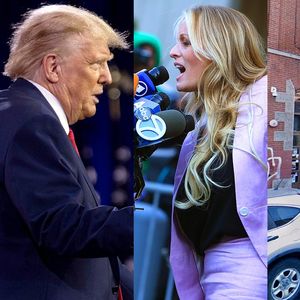
CONTACTStaffCAREER OPPORTUNITIESADVERTISE WITH USPRIVACY POLICYPRIVACY PREFERENCESTERMS OF USELEGAL NOTICE
© 2024 Pride Publishing Inc.
All Rights reserved
All Rights reserved
By continuing to use our site, you agree to our Private Policy and Terms of Use.
COMMENTARY: Right now there is a buzz in Washington D.C., and in our communities about the Uniting American Families Act -- a piece of legislation much maligned and misunderstood. Immigration laws and policies are often confusing for families, and the broken immigration system is challenging to navigate. The unique challenges lesbian, gay, bisexual, and transgender families face in this system are often ignored or exacerbated by homophobia and not well understood by those who are not directly affected by the issues. As Asian-American and Pacific Islander immigrants and their families address issues around immigration, LGBT families face additionally unique and burdensome circumstances.
One of the main ways that people immigrate to the U.S. is through sponsorship by certain family members. U.S. citizens and legal permanent residents (or green card holders) may bring their closest family members from other countries to live here permanently through the family-based immigration system.
In all, family sponsorship accounts for more than 85% of legal immigration to the United States.
In the family immigration system, qualifying relationships are grouped into two main categories: immediate relatives and family preference. Immediate relatives are the spouses, unmarried minor children, and parents of U.S. citizens. Relatives in the family preference category are the unmarried or married adult children of citizens, spouses and unmarried children of green card holders, or the siblings of citizens. The annual ceiling for all family-based immigration is 480,000 individuals per year.
Each year the number of family members who apply for visas through the family preference categories exceeds the number of visas available. A combination of limits on overall visas and visa caps per country contributes to long wait times for reunification of immigrant families.
These waiting periods often extend for years and even decades. For example, currently, the brother of a U.S. citizen who is emigrating from the Philippines would expect to wait 23 years for a visa, and the married daughter a U.S. citizen emigrating from India or mainland China can expect to wait 10 years.
Asian-Americans are the most likely to have family members caught up in the visa backlogs because nearly two thirds of Asian-Americans are foreign-born. With so many close loved ones overseas, Asian-Americans rely on family sponsorship to keep their family units intact. Thus, although Asian-Americans make up only 4%-5% of the U.S. population, they sponsor more than a third of all family-based immigrants. Currently, out of the 4.5 million family members in the visa backlogs, nearly half are relatives of Asian-Americans. LGBT individuals who are involved in the broken immigration system must not only contend with the challenges inherent in the long backlogs but the burdens of homophobia and cultural isolation that often compound these challenges. The family immigration system urgently needs reform to reduce the backlogs so immigrant families can be reunited.
The Uniting American Families Act is a complex and important piece of legislation, and it is imperative that we continue to educate members of Congress about the ongoing impact of the broken immigration system on the families of lesbian, gay bisexual and transgender people. The National Queer Asian Pacific Islander Alliance has been holding public forums on the issue around the country over the past two years, most recently in Houston and San Jose, Calif. We anticipate holding another in Los Angeles in August.
For those who live under the shadow of the immigration system, its negative impact is great and intensely felt. For those who do not, the system is seems remote and difficult to understand. Through our LGBT-focused forums and the distribution of new fact sheets, NQAPIA continues to work to raise awareness about the intersections between immigration rights and LGBT equality. Please join us. This is a battle we cannot afford to lose.
Want more breaking equality news & trending entertainment stories?
Check out our NEW 24/7 streaming service: the Advocate Channel!
Download the Advocate Channel App for your mobile phone and your favorite streaming device!
From our Sponsors
Most Popular
Here Are Our 2024 Election Predictions. Will They Come True?
November 07 2023 1:46 PM
Meet all 37 of the queer women in this season's WNBA
April 17 2024 11:24 AM
17 Celebs Who Are Out & Proud of Their Trans & Nonbinary Kids
November 30 2023 10:41 AM
Here Are the 15 Most LGBTQ-Friendly Cities in the U.S.
November 01 2023 5:09 PM
Which State Is the Queerest? These Are the States With the Most LGBTQ+ People
December 11 2023 10:00 AM
These 27 Senate Hearing Room Gay Sex Jokes Are Truly Exquisite
December 17 2023 3:33 PM
10 Cheeky and Homoerotic Photos From Bob Mizer's Nude Films
November 18 2023 10:05 PM
42 Flaming Hot Photos From 2024's Australian Firefighters Calendar
November 10 2023 6:08 PM
These Are the 5 States With the Smallest Percentage of LGBTQ+ People
December 13 2023 9:15 AM
Here are the 15 gayest travel destinations in the world: report
March 26 2024 9:23 AM
Watch Now: Advocate Channel
Trending Stories & News
For more news and videos on advocatechannel.com, click here.
Trending Stories & News
For more news and videos on advocatechannel.com, click here.
Latest Stories
Biden will hammer Trump over abortion bans in Florida speech
April 23 2024 5:00 AM
Tristan Snell, who brought down Trump University, sees conviction in hush money case
April 22 2024 7:36 PM
Joe Biden admin marks Earth Day with major environmental initiatives
April 22 2024 4:18 PM
Texas Gov. Greg Abbott: 'We want to end' trans and gender nonconforming teachers
April 22 2024 4:13 PM
Nonbinary 17-year-old killed two years after being reported missing
April 22 2024 3:46 PM

Pride
Yahoo FeedIndulge in luxury and sensuality with The Pride Store’s Taurus gift guide
April 22 2024 11:46 AM
The gay man leading the Earth Day Initiative offers hope for the future
April 22 2024 9:00 AM
Pattie Gonia takes drag and fierceness to Capitol Hill to voice environmental concerns
April 22 2024 8:23 AM
Jodie Foster leaves her mark in cement at L.A.'s Chinese Theatre
April 22 2024 7:55 AM
Climate change has a bigger impact on LGBTQ+ couples than straight couples. Here's how
April 22 2024 7:42 AM
Iraq postpones vote on bill punishing gay sex with death
April 20 2024 1:31 PM
Russian poetry contest bans entries from transgender poets
April 20 2024 1:25 PM
Here's who won 'RuPaul's Drag Race' season 16
April 20 2024 1:01 PM

















































































